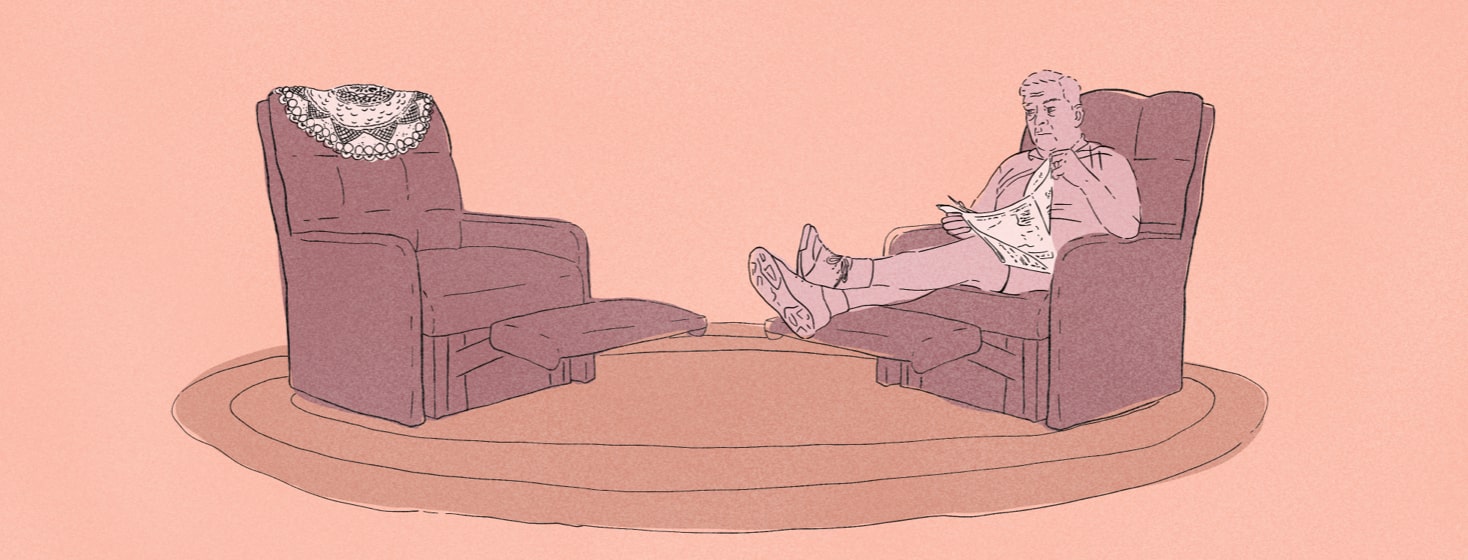Base Tough Decisions On Your Loved One's Comfort, Not Your Own
One of the hardest decisions we had to make during my mom’s ten-year battle with Alzheimer’s was for her to become bedbound.
A few months before my mom passed away, we noticed she was having more difficulty sitting up throughout the day. Her hospice nurse said she should be sleeping more during the day, so we began putting her back in bed for a couple of hours after her meals. My mom could not get in and out of bed herself, so we had to do it for her. We were essentially picking her up and putting her down wherever we wanted her -- in a chair, in her wheelchair, in her bed.
We began to see the toll it took on her to get in and out of bed several times throughout the day. Sitting up in a chair for hours also began to take a toll on her. Tasks that seemed simple and effortless to us actually required a lot of effort on my mom’s part. Even though we were lifting her up out of bed, it was still a great strain on her body and it consumed what little energy she had. It was exhausting her and putting too much pressure on her delicate skin.
Having tough conversations with my family
My sister and I agreed she should not be getting out of bed anymore. Although it was difficult to accept, we knew it was best for her. She was exhausted and needed to be in bed where she was more comfortable.
My dad was very resistant to the idea. Whenever we weren’t around, he would have my mom’s caregiver get her out of bed and sit her in the recliner in the family room. We kept insisting that she should not be getting out of bed.
It dawned on me that my dad wanted my mom sitting up in the recliner every day because it was comforting for him to see her there. As long as he walked in the house to see her sitting in that recliner, he could pretend like everything was fine.
I understood. It was hard.
Our feelings and comfort versus my mom's
I gently brought my mom's comfort up to my dad in a difficult conversation. I told him we had to put our feelings and comfort aside to do what was best for my mom. We could no longer continue dragging her out of bed and propping her up in a chair so we could pretend she was okay.
My dad agreed with everything I said. He added he was afraid my mom becoming bedbound would make things progress more quickly. He was worried it would cause her to die sooner.
I explained to him that while we could continue getting my mom out of bed every day, it would be solely for our comfort. It was not beneficial for her to get out of bed and it took a lot out of her. She was tired. She needed to be comfortable and have more time to rest. It would give her a much better quality of life for whatever time she had left. It would allow her to conserve her energy and have more peace.
My dad reluctantly agreed and my mom began spending all her time in bed. She started sleeping most of the day. I took this as a sign that she was finally comfortable and able to get the rest she desperately needed.
Allowing mom to stay in bed
My mom used to keep her eyes closed all the time, even when she wasn’t sleeping, but once she was spending all her time in bed, she began to open her eyes when she was awake. She opened her eyes more in the last two months of her life than in the last two years. It was like she finally had enough energy to open her eyes and look around.
My mom was bedbound for over two months before she passed away. Making the decision for her to be bedbound did not cause her to decline. It did not cause her to die. Alzheimer’s did.
But making the decision for my mom to be bedbound allowed her to be comfortable. It allowed her to sleep until she eventually went to sleep and did not wake up. And honestly, after battling Alzheimer’s for ten years, it was the most peaceful passing we could have hoped for.
Can you relate to Lauren's experience? What is a big decision you had to make as a caregiver that wasn't easy? Connect with others by sharing your own story.

Join the conversation